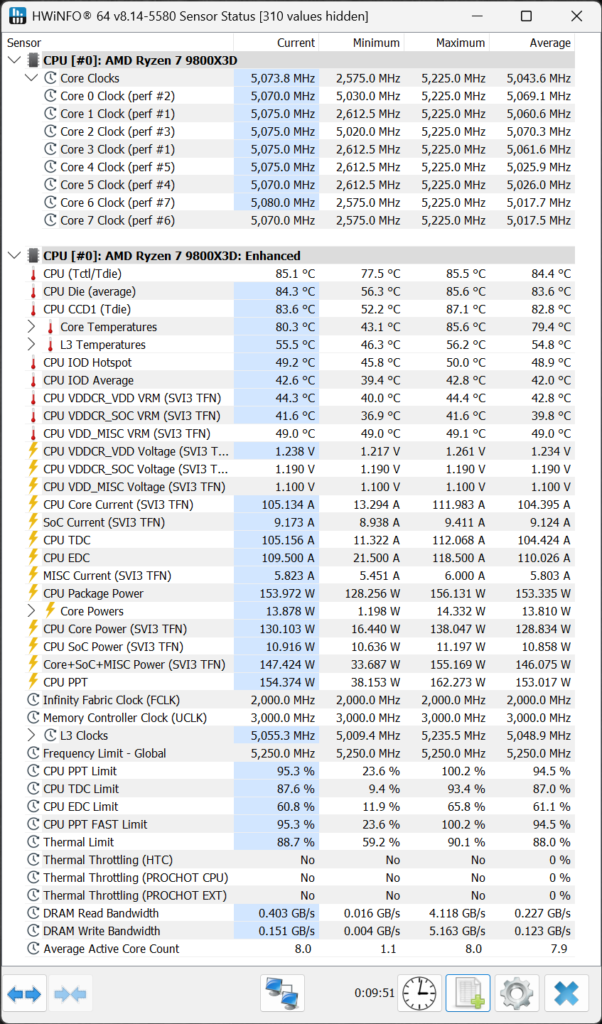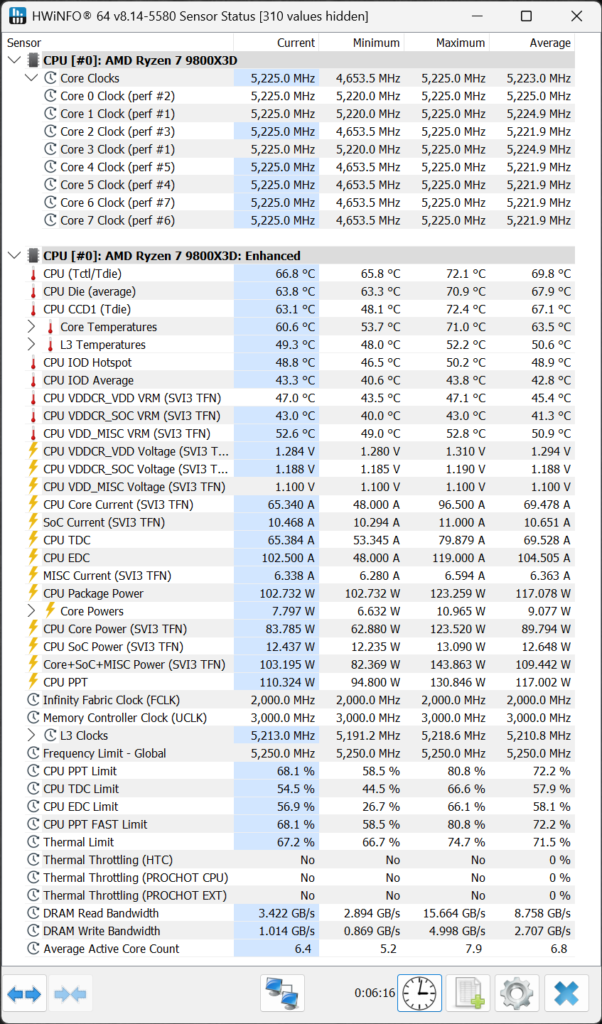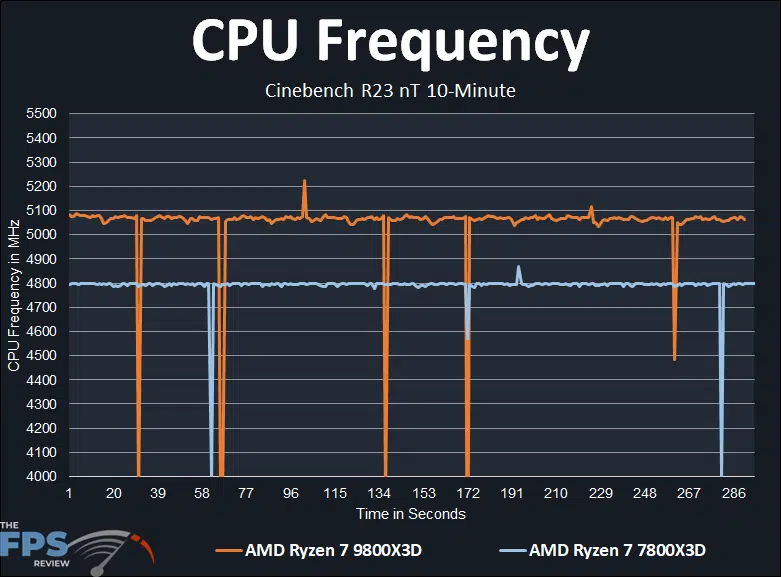CPU Clock Frequency Over Time
Why does the AMD Ryzen 7 9800X3D use more power, run a little warmer, but also provide a huge multi-threading and single-threading performance uplift? Well, as we mentioned at the introduction, it’s all about frequency and the AMD Ryzen 7 9800X3D’s ability to run and sustain higher frequencies than the previous generation AMD Ryzen 7 7800X3D thanks to 2nd Generation 3D V-Cache. Therefore, let’s test it.
This graph tells all. Above, we are looking at the AMD Ryzen 7 7800X3D and AMD Ryzen 7 7800X3D running full-load, all-cores, in Cinebench R23 for 10 minutes logging the overall average CPU clock frequency. We can see that the previous generation Ryzen 7 7800X3D runs at 4.8Ghz when all the cores are being pushed.
The new AMD Ryzen 7 9800X3D now runs at up to almost 5.1GHz, it was right at 5.043GHz average clock speed through the run, bouncing between 5.040GHz-5.086GHz. At all times, it was above 5GHz during the rendering portions. This gives the AMD Ryzen 7 9800X3D about a 200MHz+ frequency boost over the Ryzen 7 7800X3D in all-core full-load workloads.
CPU Frequencies Multi-Core vs Gaming


We also took some CPU frequency readings while gaming, as well. In the screenshot on the left you will see the AMD Ryzen 7 9800X3D running our full-load all-core Cinebench R23 run, and the clock speeds achieved while it was in progress. In the screenshot on the right side is the AMD Ryzen 7 9800X3D while gaming, and you can see that the clock speeds are consistent and sustained at 5.225GHz while gaming! That accounts for the power difference while gaming. Therefore yes, we are boosting to that 5.2GHz while gaming, as advertised and quoted, we’re hitting it folks!

